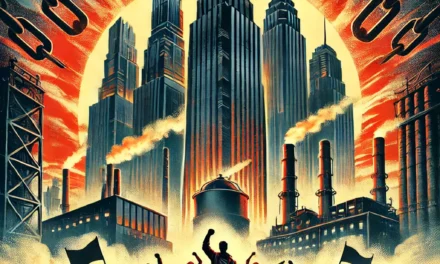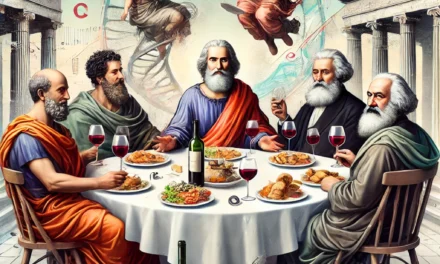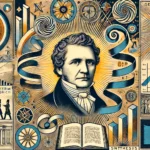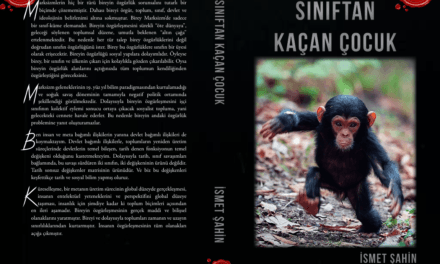
Philosophical Critique of Sınıftan Kaçan Çocuk

Philosophical Critique of Sınıftan Kaçan Çocuk
1. Marxism’s Failure to Resolve the Problem of Individual Freedom
In Sınıftan Kaçan Çocuk, Şahin criticizes Marxism for subsuming the individual under the collective entity of the class, thereby neglecting individual autonomy. He argues that Marxist theory views freedom not as something inherent to the present, but as something deferred to a distant future—only attainable in the ideal socialist society once class antagonisms have been abolished. Şahin writes:
“The liberation of the individual is continuously postponed to the ‘other world’, to the promised social order of the future, to the eagerly awaited ‘golden age’. For this reason, every demand is not for individual freedoms but directly for the freedom of the class” (Sınıftan Kaçan Çocuk, p. 10).
This quote emphasizes one of Şahin’s core concerns: in Marxism, the individual’s freedom is subordinated to the collective struggle for class liberation. Instead of focusing on present freedoms, Marxism postpones the resolution of individual autonomy to the future, making it contingent upon the arrival of the classless society.
Philosophical Reflection
From a philosophical standpoint, this critique resonates with broader discussions on the nature of freedom, particularly the tension between negative liberty (freedom from external constraints) and positive liberty (the ability to act on one’s own will in pursuit of self-realization). Marx’s focus on structural oppression and the emancipation of the working class might be viewed as prioritizing positive liberty at the expense of immediate negative liberties.
However, one might question whether Şahin’s interpretation neglects the ways in which Marx’s concept of alienation already addresses individual autonomy. For Marx, the capitalist system alienates individuals not only from their labor but from their true selves, and freedom within this context would mean overcoming this alienation. Thus, individual freedom is deeply tied to collective liberation, as the system that oppresses the class also oppresses the individual. Yet, Şahin is critical of this interdependence, arguing that individual freedom should not be deferred or subsumed under the collective project.
2. Critique of Marx’s Dialectical Method
Şahin argues that Marx’s use of Hegelian dialectics is inconsistent and fails to produce a coherent materialist methodology. He questions whether Marx truly developed an original method, suggesting instead that Marx borrowed from Hegel’s idealist system without adequately transforming it for materialist purposes. Şahin asserts:
“Does Marx really have a method? If we agree that Marx has a method, what is it? Or is this method dialectical materialism?” (Sınıftan Kaçan Çocuk, p. 11).
In this passage, Şahin challenges the very foundation of Marx’s method, posing a critical question about whether Marx successfully developed a materialist methodology that can account for the complexities of history and society. For Şahin, the reliance on dialectical materialism, as articulated by Marx, is problematic because it still carries traces of Hegel’s idealism, which Marx claimed to have discarded.
Philosophical Reflection
Şahin’s critique of Marx’s dialectical method raises important philosophical questions about the relationship between material conditions and abstract thought. In dialectical materialism, history progresses through contradictions inherent in material conditions, particularly in class relations. For Marx, these contradictions drive social change, leading eventually to the overthrow of capitalism. However, Şahin’s critique suggests that Marx may have overestimated the efficacy of this method, implying that it lacks the coherence needed to fully explain historical development.
Philosophically, one could compare this critique to critiques from thinkers like Karl Popper, who argued that Marx’s theory of history was unscientific because it was not falsifiable. According to Popper, Marx’s dialectical method lacks empirical rigor, making it impossible to test its claims about historical inevitability. In contrast, thinkers such as Georg Lukács and Theodor Adorno have defended dialectic as an open-ended, non-deterministic method that allows for a deeper understanding of social contradictions.
3. State-Dependent Relations and the Extension of Marxist Critique
One of Şahin’s most significant contributions is his expansion of Marx’s critique of capitalism to include what he calls “state-dependent relations.” While Marx focused primarily on how individuals are alienated through their relationship to commodities in capitalist production, Şahin argues that the state plays an equally critical role in structuring dependencies and controlling social relations. He writes:
“Alongside human and commodity-dependent relations, I also include state-dependent relations. By state-dependent relations, I mean that in the process of reproducing societies, states are a fundamental component” (Sınıftan Kaçan Çocuk, p. 12).
In this passage, Şahin asserts that the state is not merely an instrument of class domination but a fundamental structure that shapes and limits individual freedom. He critiques Marx’s instrumentalist view of the state, which sees it primarily as a tool for the ruling class. For Şahin, the state has its own mechanisms of control that transcend class structures, making it an enduring source of human dependency and alienation.
Philosophical Reflection
This critique places Şahin in dialogue with a range of thinkers, particularly those from the anarchist and post-structuralist traditions, who have argued that the state is a source of oppression independent of class relations. Michel Foucault’s concept of biopower, for example, extends this analysis by showing how the state exercises control over individuals through institutions, surveillance, and norms. Similarly, Pierre Clastres, in his critique of the state, argues that state power exists as an entity with its own logic of domination, not reducible to class interests.
From this perspective, Şahin’s expansion of Marx’s critique to include the state suggests a more radical rejection of authority, aligning him with anarchist critiques that view the state as inherently coercive. However, Marxists might counter that the state, while presently a tool of capitalist domination, can be restructured or even abolished in a post-capitalist society. Marx’s notion of the “withering away” of the state suggests that the state’s role is not permanent, but contingent on class relations. Şahin’s critique invites further reflection on whether the state can ever truly be transcended or whether it is an inescapable form of social organization.
4. Globalization and the Expansion of Human Freedom
Şahin also engages with the concept of globalization, which he views as a development that, despite its contradictions, has opened new possibilities for individual freedom. He suggests that globalization, by transcending the spatial and temporal limitations of earlier social forms, offers new opportunities for self-realization. He writes:
“Globalization…is the most advanced stage in human society’s forms thus far. It has created the real material and cognitive possibilities for the individual’s liberation” (Sınıftan Kaçan Çocuk, p. 13).
For Şahin, globalization represents a historical moment in which the material and cognitive conditions for individual emancipation have been fully realized. He sees this as a step beyond earlier societal forms, allowing individuals to transcend the limitations of time and space that previously constrained their freedom.
Philosophical Reflection
This optimistic view of globalization could be critiqued from multiple philosophical perspectives. While globalization has indeed broken down many barriers and expanded opportunities for communication, travel, and economic interaction, it has also exacerbated global inequalities and intensified the commodification of labor. Philosophers like David Harvey and Slavoj Žižek have critiqued globalization as the extension of capitalist exploitation on a global scale, deepening the very class divisions that Marx identified.
Moreover, globalization’s liberatory potential is deeply ambiguous. While it may create new spaces for individual freedom, it also subjects individuals to new forms of control, particularly through global economic forces, multinational corporations, and supranational institutions. This critique aligns with the work of Zygmunt Bauman, who argues that globalization has created a world in which the wealthy enjoy unprecedented mobility, while the poor are increasingly trapped in precarious conditions.
Conclusion
By incorporating Şahin’s own words into this philosophical critique, we can see how Sınıftan Kaçan Çocuk challenges some of the core tenets of Marxist theory, particularly in its treatment of individual freedom, its use of dialectical method, and its understanding of the state and globalization. While his critique offers valuable insights into the limitations of Marxism, it also raises important questions about the possibility of reconciling individual autonomy with collective liberation, and whether the state and globalization can ever truly serve as vehicles for emancipation.
Review
82%
Philosophical Critique of Sınıftan Kaçan Çocuk By incorporating Şahin’s own words into this philosophical critique, we can see how Sınıftan Kaçan Çocuk challenges some of the core tenets of Marxist theory, particularly in its treatment of individual freedom, its use of dialectical method, and its understanding of the state and globalization. While his critique offers valuable insights into the limitations of Marxism, it also raises important questions about the possibility of reconciling individual autonomy with collective liberation, and whether the state and globalization can ever truly serve as vehicles for emancipation.






















